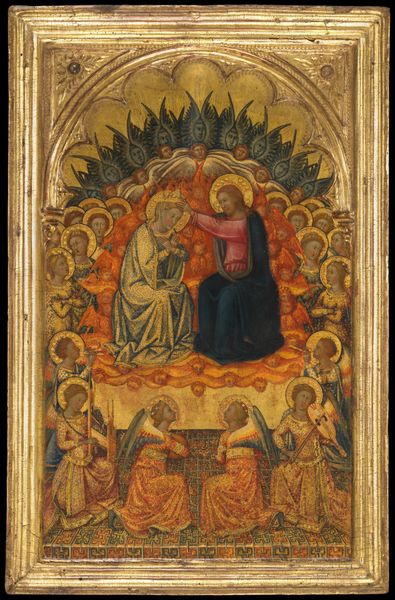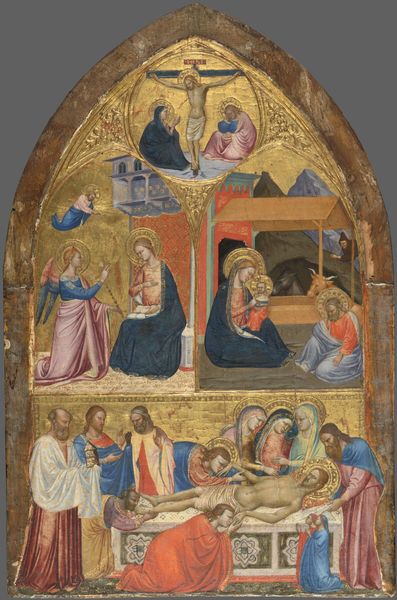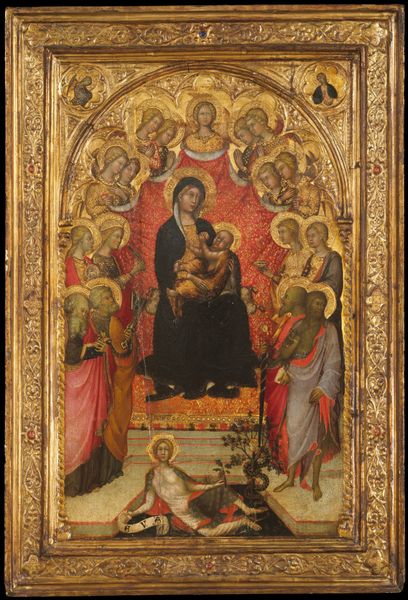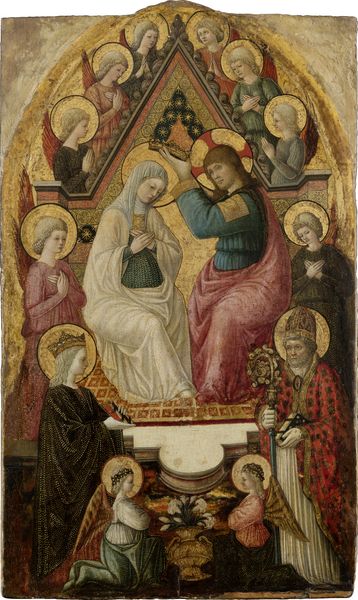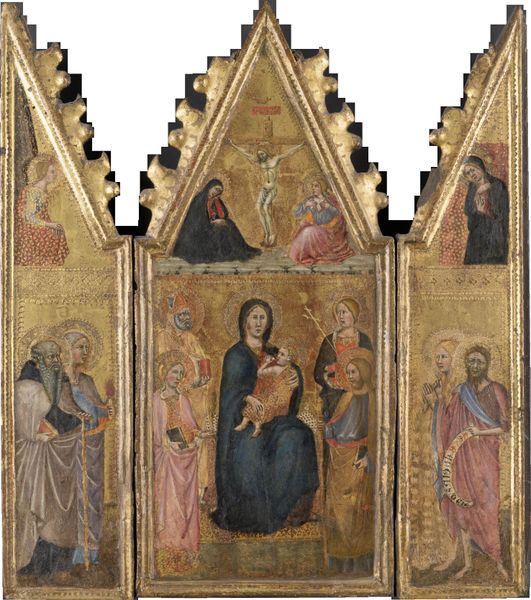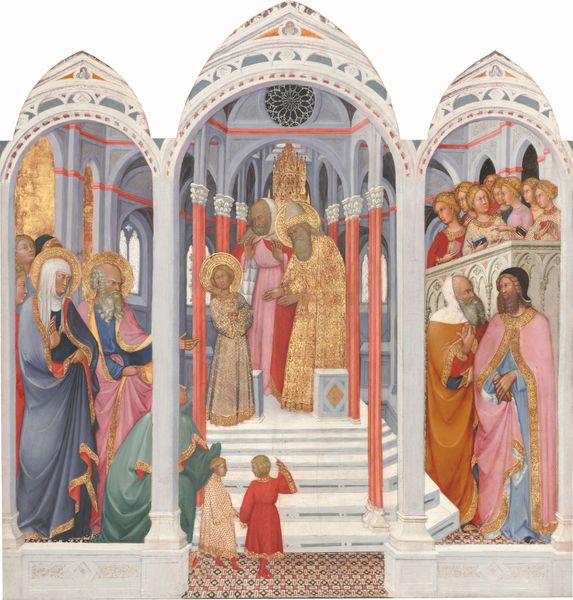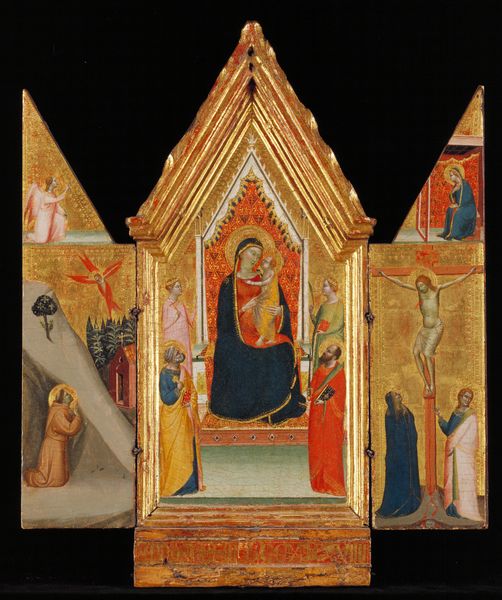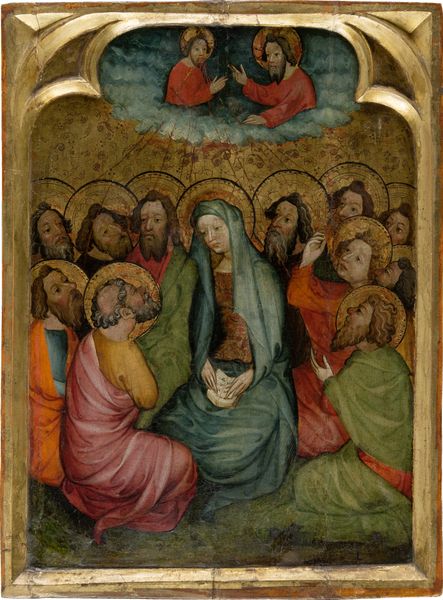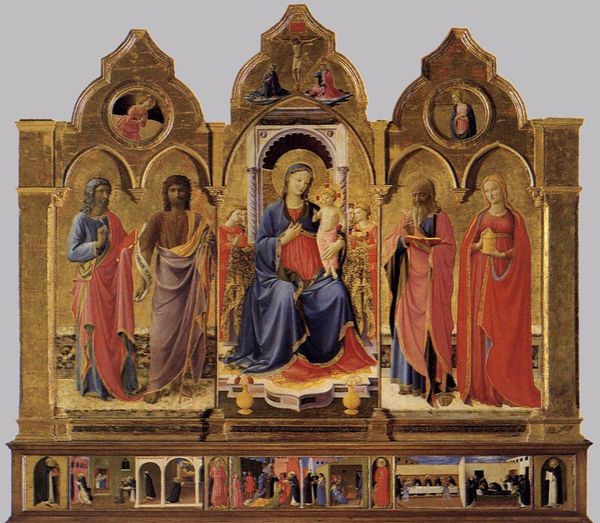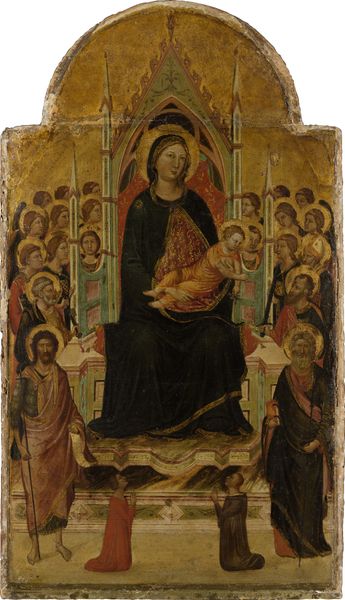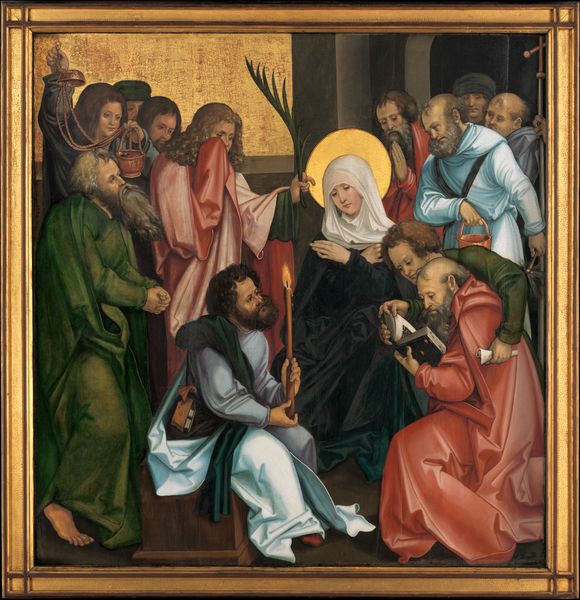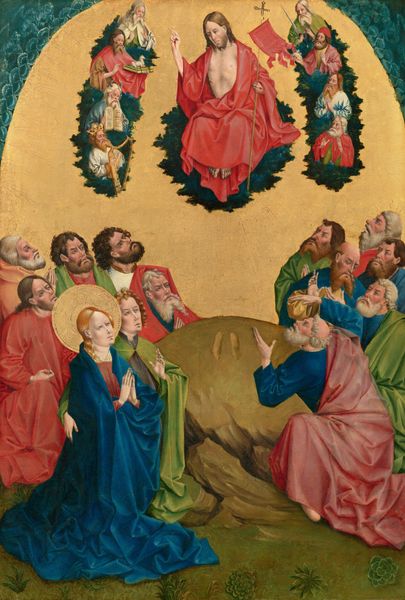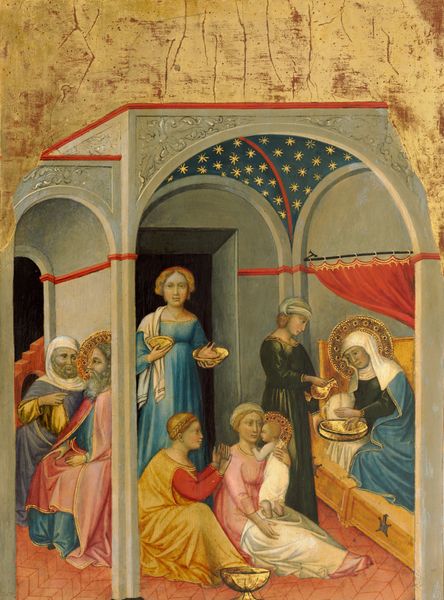
The Assumption of the Virgin with Busts of the Archangel Gabriel and the Virgin of the Annunciation c. 1400 - 1405
0:00
0:00
tempera, painting
#
narrative-art
#
tempera
#
painting
#
figuration
#
oil painting
#
history-painting
#
italian-renaissance
Dimensions: painted surface: 66.5 × 38.1 cm (26 3/16 × 15 in.) overall: 79.8 × 51 cm (31 7/16 × 20 1/16 in.)
Copyright: National Gallery of Art: CC0 1.0
Paolo di Giovanni Fei created this panel painting of ‘The Assumption of the Virgin with Busts of the Archangel Gabriel and the Virgin of the Annunciation’ sometime between 1384 and 1411. The painting tells of the miraculous ascent of Mary into heaven. During the late medieval period, gender roles were firmly established by the Church. Mary stood as the ultimate symbol of purity and motherhood, and her assumption reinforced the idealization of women within religious doctrine. Yet this image also offers a glimpse of female power. Mary's acceptance into heaven defies earthly constraints and celebrates her unique role in salvation history. Note how Fei depicts her seated in a position of serene authority, surrounded by adoring angels. Consider the emotional impact of this painting on its original audience. In a time marked by social hierarchy and limited opportunities for women, the story of Mary's assumption offered solace, hope, and a vision of female agency. This portrayal of Mary isn't just about religious devotion; it reflects complex negotiations of gender, power, and identity in the late medieval world.
Comments
No comments
Be the first to comment and join the conversation on the ultimate creative platform.
